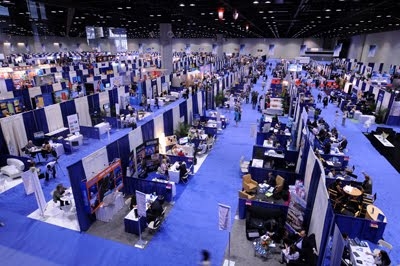U.S. Travel Association's IPW Event's Economic Impact Four Times Greater Than Super Bowl

The estimated economic impact of U.S. Travel Association’s IPW, formerly known as International Pow Wow, is four times that of the Super Bowl.
Bringing 6,000 travel buyers, suppliers and media to a host city for three days filled with upwards of 90,000 one-on-one business appointments, the three-day event packs an economic wallop that extends far into the future.
A comparison of the economic impact of the 2013 IPW event held in Las Vegas with a similar study of the 2012 Super Bowl in Indianapolis shows that, while the Super Bowl attracted more attendees and visitors, the measurable impact of IPW is longer - three years as opposed to four days - and significantly larger across key economic categories.
For the host city, IPW produced more than four times as many direct expenditures; delivered more than five times the amount of GDP value-added direct impact; and generated greater tax revenues across the local, state and federal levels.
“It’s the gift that keeps on giving,” said Malcolm Smith, vice president of U.S. Travel and general manager of IPW, during a conference call unveiling the news.
For the U.S. host city, the report - conducted by research consulting firm Rockport Analytics, LLC - found that IPW, with the Las Vegas event as its focus, will result in:
- A 1.06 million increase in the total number of international visitors over the next three years;
- An increase in tourism spending of $1.6 billion; and
- A direct economic benefit of $891 million.
For the United States, travel initiated by IPW 2013 will:
- Attract 8.8 million additional international visitors;
- Increase total international visitor spending by $28 billion;
- Add $4.7 billion in direct bookings to U.S. destinations over the next three years;
- Directly contribute $16 billion to U.S. GDP;
“We always knew that IPW delivers super-sized economic benefits to the U.S. host city and the United States. We now know those effects are Super Bowl-sized,” said U.S. Travel Association President and CEO Roger Dow.
He added, “Better still, a city’s investment in IPW is the gift that keeps giving, paying dividends over three years, as advanced travel bookings bear fruit in the form of more international visitors and visitor spending in the host city and throughout the country.”
Rockport Analytics’ period of analysis matches the travel booking cycle, recognizing that travel is booked up to three years in advance. The firm’s earlier study of the 2012 Super Bowl determined that the game’s duration of significant economic impact lasted four days.
“IPW is a catalyst for a significant amount of inbound travel into the U.S. and into the (host) city,” Smith said.
He added that shows are booked in host cities until 2020. This year’s event is on tap April 5-9 in Chicago, with the following cities booked in the following years: 2015, Orlando; 2016, Miami; 2017, Washington, D.C.; 2018, Denver; 2019, Anaheim; and 2020 back in Las Vegas.


Add new comment